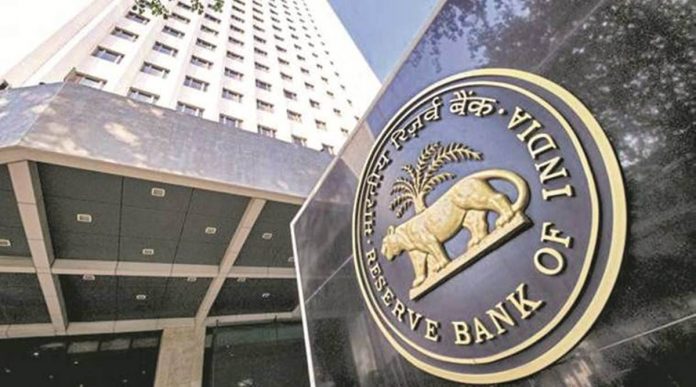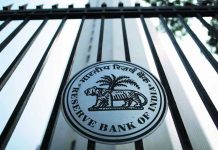This article is authored by Akash Krishnan, a law student from ICFAI Law School, Hyderabad. It discusses in detail a litigation spread over six years on the disclosure of information by the RBI under the Right to Information Act, 2005.
Table of Contents
Introduction
There are multiple events that led up to the case of Reserve Bank of India vs Jayantilal N. Mistry (2021). Initially, in 2015, several writ petitions were filed for disclosure of the information relating to procedure and rules of inspections conducted by the RBI, inspection reports, records of actions taken against directors/managers for the recovery of public funds, etc. However, the disclosure was denied by the RBI on multiple grounds. In an order passed by the Supreme Court in the case of Reserve Bank Of India vs Jayantilal N. Mistry (2015), the RBI was ordered to disclose the information in the public interest but the RBI failed to comply with this direction.
In 2019, a contempt petition was filed against the RBI in the case of Girish Mittal vs. Parvati V. Sundaram (2019) wherein once again the Supreme Court ordered the RBI to make the disclosures but again no steps were taken by the RBI in this regard.
Finally in 2021, in the case of Reserve Bank of India vs Jayantilal N. Mistry (2021), the RBI filed a petition to recall the order passed by the Court in 2015. However, the Supreme Court observed that the RBI was trying to file a petition for review in the guise of an application for recall and held that the RBI should comply with the order passed in 2015.
Now that we have understood the circumstances leading to this case in brief, let us have an in-depth understanding of the same.
Reserve Bank of India v. Jayantilal N. Mistry (2015)
Brief facts
The Reserve Bank of India (RBI) conducts regular inspections of banks and financial institutions and prepares inspection reports for the same. These reports contain confidential information of the banks and financial institutions and RBI holds this information in a fiduciary capacity. Multiple writ petitions were filed seeking information regarding the procedure and rules of these inspections, inspection reports, records of actions taken against directors/managers for the recovery of public funds, etc.
The disclosure of this information was denied by the RBI on the ground that RBI had a fiduciary relationship with the banks and financial institutions. It was also contended that the disclosure of information was neither in the greater public interest nor in the economic interests of the country.
Held
- RBI does not have a fiduciary relationship with banks and financial institutions. The inspection conducted by the RBI is in furtherance of its statutory duty and the inspection reports that are prepared by the RBI are also part of its statutory duty.
- By providing the information for the purpose of inspection and by collecting this information, neither the RBI nor the banks and financial institutions are acting out of generosity or in the best interests of each other but are only performing the duties mandated by law.
- Just because the label of collection and storing of information in a fiduciary capacity is being added does not mean that a fiduciary relationship actually exists. The existence of a fiduciary relationship depends on the existence of a relationship built on trust and confidence between two parties. However, the relationship between banks or financial institutions and the RBI is statutory and not based on trust or confidence.
- RBI, being a statutory body, should act in the greater public interest and not in the interest of individual banks or financial institutions. It is under no legal obligation to increase the profits or protect the interests of public and private sector banks. Therefore, it should act with transparency and it is duty-bound to comply with the provisions of the Right to Information Act, 2005 (RTI Act).
- Non-disclosure of the information sought by the Respondents will be detrimental to the public interests of the country and will also be against the economic interests of the nation. Only if the citizens of the country are aware of the economic stability of the banks and financial institutions of the country can the economy truly thrive. There is no threat to the economic security of the country if such documents are disclosed to the general public.
- Section 8(1)(e) of the RTI Act states that disclosure of information should be avoided when such disclosure is unwarranted or undesirable. It also states that this provision should be relied upon only in exceptional cases. However, the RBI cannot rely on this provision to deny disclosure of information. This is because the role of the RBI as a regulatory authority is to make the banks and financial institutions accountable for their actions. The disclosure of the information would be in furtherance of this role of the RBI and thus the defence under Section 8(1)(e) of the RTI Act will not be available to the RBI in the present case.
- Banks and Financial institutions should not be allowed to defraud the general public and the RBI should protect the interests of the general public by bringing the actions of the banks into the public domain.
- The Government of India is based on the principle “of by the people, of the people and for the people.” Based on this principle, it is necessary that the Government discloses all the information regarding matters of public concern. This builds trust between the Government and the citizens of the country and ensures Government accountability at all stages.
- The RBI is a statutory body and it has to abide by the fundamental principles of the Government of India. Any information that is not detrimental to the public or economic interest of the country should be disclosed by the RBI irrespective of the impact of such disclosures on private players.
Reserve Bank of India v. Jayantilal N. Mistry (2021)
Brief facts
The Supreme Court in Reserve Bank of India vs Jayantilal N. Mistry (2015) had held that RBI does not have a fiduciary relationship with banks and financial institutions. The existence of a fiduciary relationship depends on the existence of a relationship built on trust and confidence between two parties. However, the relationship between banks or financial institutions and the RBI is statutory and not based on trust or confidence. It further held that the RBI, being a statutory body, should act in the greater public interest therefore, it should act with transparency and it is duty-bound to comply with the provisions of the Right to Information Act, 2005.
However, the RBI failed to comply with the directions issued by the Court in the aforesaid case. The 2019 RBI Disclosure Policy that was directly in violation of the order passed by the court was withdrawn by the RBI after an order for the same was passed by the Supreme Court in the case of Girish Mittal v. Parvati V. Sundaram (2019).
The present petition was filed for the recall of the initial judgment of the court in Reserve Bank of India vs Jayantilal N. Mistry (2015).
Submissions of the parties
Submissions of the Applicants
- In Indian Bank vs. Satyam Fibres India Pvt Ltd (1996), the Supreme Court has held that it is the inherent power of every court to recall or set aside an order if such order is affected by the following three conditions:
- The order was obtained by fraud
- One of the parties of the case misled the Court resulting in the passing of the order
- The order suffers from a mistake committed by the Court.
- Two additional grounds for recall or setting aside an order were provided in the case of A.R. Antulay vs. R.S. Nayak (1988). These grounds are firstly, non-addition of a necessary party in the case and secondly, the order was passed ex-parte and the party against whom the order was passed had received no notice regarding the hearing of the case.
- In Budhia Swain vs. Gopinath Deb (1999), another ground was added to the list, i.e., if an order has been rendered in ignorance of facts then the same can be recalled by the Court.
- In Asit Kumar Kar vs. State of West Bengal (2009), the Supreme Court held that the right to be heard is a fundamental principle of the principles of natural justice and if an order is passed without hearing a party, it should be recalled.
- In light of the aforesaid precedents, it was contended that the Court had failed to consider several important questions of law and thus the impugned order was defective and therefore an application for recall was maintainable.
- It was further contended that banks and financial institutions have the right to privacy that is provided under Article 21. Thus, the disclosure of the information would be an infringement of their fundamental rights.
Submissions of the Respondents
- In Delhi Administration vs. Gurdip Singh Uban (2000), it was held that when applications are filed not because any clarification or modification or recall is necessary but because the applicant, in reality, wants a re-hearing, such applications in substance are review applications that deserve to be rejected. A party cannot be permitted to circumvent or by-pass circulation procedure and indirectly obtain re-hearing in open Court and the Court should not permit such application if it is in substance a review application.
- In light of the aforesaid precedent, it was contended that the Applicant was attempting to guise a review petition in the form of an application of recall and the same should not be allowed.
- In Asit Kumar Kar vs. State of West Bengal (2009), the Supreme Court held that the right to be heard is a fundamental principle of the principles of natural justice and if an order is passed without hearing a party, it should be recalled.
- In light of the aforesaid precedent, it was contended that all the parties were given a chance of fair hearing in the initial case. Thus, there was no violation of the principles of natural justice and the order cannot be recalled on that ground.
- It was also contended that any information that is not detrimental to the public or economic interest of the country should be disclosed by the RBI irrespective of the impact of such disclosures on the banks and financial institutions.
Held
- The Supreme Court Rules, 2013 has no provision under which an application of recall can be filed by any party.
- The Court upheld the ruling in the case of In Delhi Administration vs. Gurdip Singh Uban (2000) and observed that the present application for recall was a review petition in disguise.
- In In Re: Vijay Kurle And Ors vs Unknown (2020), the Supreme Court had held that if a party files an application knowing that such application is not maintainable, it would amount to an abuse of process of the court.
- In light of the aforesaid judgement, the Court observed that RBI cannot abuse the process of Court in an attempt to reopen concluded judgements of the Court.
- In light of the aforesaid grounds, the application was held non-maintainable and a direction was issued to the RBI ordering it to comply with the directions issued by the Court in 2015.
Conclusion
The Right to Information Act 2005 was enacted to ensure that the citizens have access to essential information that is available under the control of the public authorities. It was rightly held in 2015 that the RBI is a statutory authority and is bound by the provisions of the RTI Act and should act in furtherance of the objectives set under the RTI Act.
The role of RBI is not limited to ensuring economic/financial stability in the country. It has the additional responsibility of protecting and promoting the interests of the public. However, the manner in which the RBI has acted since 2015 is a clear indication that the RBI is deviating from the duties and responsibilities entrusted to it. The citizens have a right to know about a bank or financial institution before entrusting their hard-earned money to these banks and financial institutions. Only time will tell whether or not the RBI complies with the direction issued by the Apex Court in the present case.
References
- https://www.istm.gov.in/rti_portal/cms/37
- https://www.newindianexpress.com/nation/2021/aug/17/sc-refers-to-other-bench-pleas-of-banks-against-disclosure-of-information-under-rti-2346054.html
- https://www.scobserver.in/the-desk/right-to-information?slug=reserve-bank-of-india-v-jayantilal-mistry
- https://www.barandbench.com/topic/reserve-bank-of-india-v-jayantilal-n-mistry
Students of Lawsikho courses regularly produce writing assignments and work on practical exercises as a part of their coursework and develop themselves in real-life practical skills.
LawSikho has created a telegram group for exchanging legal knowledge, referrals, and various opportunities. You can click on this link and join:
https://t.me/joinchat/J_0YrBa4IBSHdpuTfQO_sA
Follow us on Instagram and subscribe to our YouTube channel for more amazing legal content.
 Serato DJ Crack 2025Serato DJ PRO Crack
Serato DJ Crack 2025Serato DJ PRO Crack










 Allow notifications
Allow notifications


